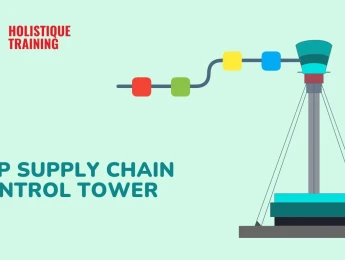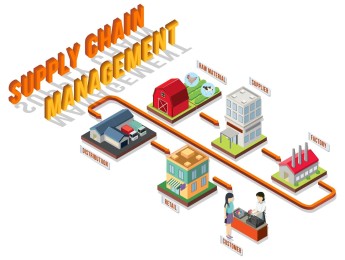Lean distribution is a system that leverages principles from lean manufacturing to eliminate waste from operations, improve customer satisfaction, and reduce costs. Employing lean helps streamline distribution operations and improve competitiveness.
This course provides a comprehensive understanding of the lean process in the distribution context to transform your business. You will explore the benefits to lean, how to develop a lean distribution framework and actionable strategies to implement lean distribution in your planning.
Upon completion of this course, participants will be able to:
- Understand the principles and methodology of lean distribution and how it reduces costs and simplifies your distribution process.
- Apply lean strategies in practical and productive ways in your downstream supply chain.
- Develop a realistic framework to customise a lean approach to transform your distribution practices.
This course is intended for:
- Supply Chain Professionals.
- Anyone looking to understand lean distribution.
- Warehouse and Distribution Managers and Supervisors.
This course uses a variety of adult learning styles to aid full understanding and comprehension. Participants will review case studies to highlight key areas of importance and possible areas for faults. They will be supplied with the best tools required for learning exercises to improve their skills. Participants will analyse the examples to thoroughly understand how these skills, techniques and methods apply in the workplace.
Day 5 of each course is reserved for a Q&A session, which may occur off-site. For 10-day courses, this also applies to day 10
Section 1: Understanding Distribution Optimisation
- Describe what optimising distribution entails.
- Investigate the impact of lower production and sourcing costs.
- Review ways to improve inventory management.
- Discuss the effects of maximising asset utilisation.
- Examine technology infrastructure and directions.
Section 2: Overview of the Lean Approach
- Describe the lean approach to distribution.
- Summarise lean thinking using the five principles.
- Review the lean distribution framework.
- Explain how the lean paradigm shift improves performance and competitiveness.
- Identify the key components of transitioning to lean.
- Investigate the lean approach to forecasting accuracy.
- Examine the role of information technology in applying the lean approach.
- Discuss the natural fit of RFID with lean manufacturing and distribution.
- Explore strategies to transition to deploying and expanding RFID systems.
- Review case studies of lean distribution in action.
Section 3: Challenges in Distribution
- Identify common distribution challenges: customer service, global sourcing, and functional silos.
- Explore barriers to implementing lean in distribution networks.
- Examine the balancing act between lean and warehousing.
Section 4: Lean Operations
- Describe the lean approach to operations.
- Explain how uncertainty is managed with lean.
- Examine the collaboration of lean and Distribution Requirements Planning (DRP).
Section 5: Lean Distribution Planning Strategies
- Review customer service policy and service strategies.
- Examine the use of market segmentation to optimise distribution.
- Analyse buffer strategies and distinctions.
- Understand pull trigger and buffer management.
- Compare using capacity or time as buffer strategies over inventory.
- Analyse replenishment orders and inventory targets.
- Describe the benefits of a lean pull system.
Section 6: The Simplicity Of Lean
- Examine the simplicity of lean.
- Review planning transformation.
- Describe the benefits of lean distribution.
- Discuss ways to sell the vision of lean distribution.
- Analyse the implementation of lean distribution.
Upon successful completion of this training course, delegates will be awarded a Holistique Training Certificate of Completion. For those who attend and complete the online training course, a Holistique Training e-Certificate will be provided.
Holistique Training Certificates are accredited by the British Assessment Council (BAC) and The CPD Certification Service (CPD), and are certified under ISO 9001, ISO 21001, and ISO 29993 standards.
CPD credits for this course are granted by our Certificates and will be reflected on the Holistique Training Certificate of Completion. In accordance with the standards of The CPD Certification Service, one CPD credit is awarded per hour of course attendance. A maximum of 50 CPD credits can be claimed for any single course we currently offer.
- Course Code PO1-118
- Course Format Classroom, Online,
- Duration 5 days














